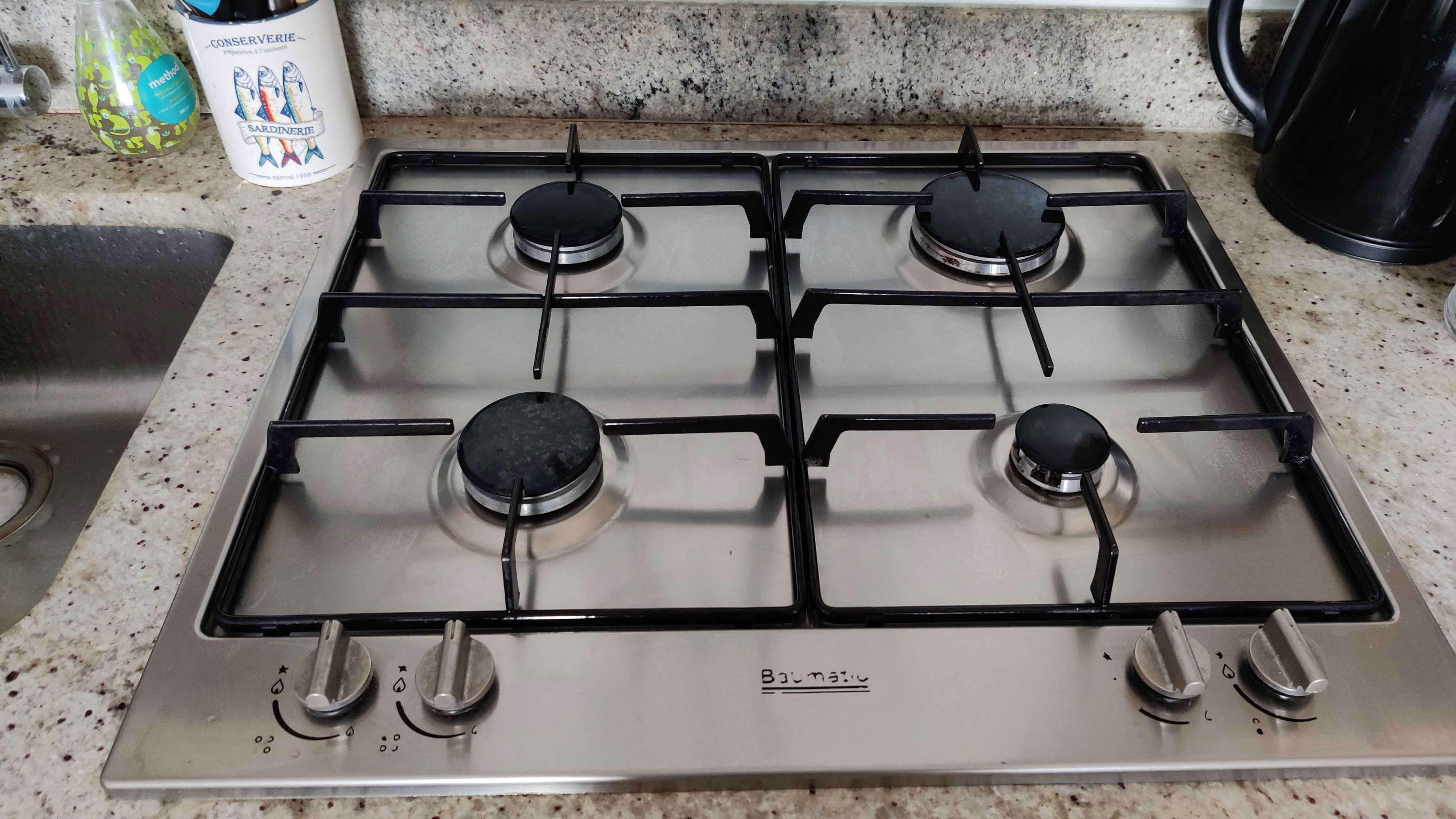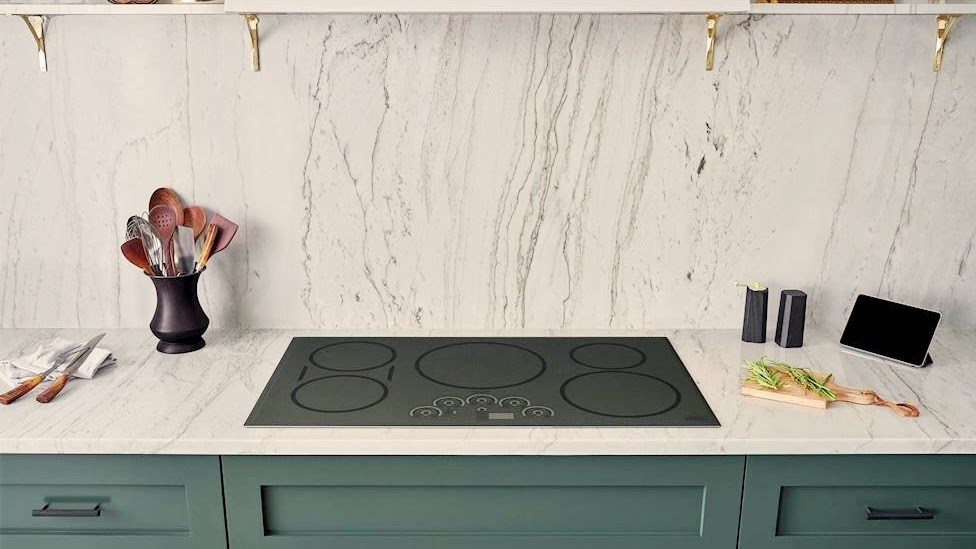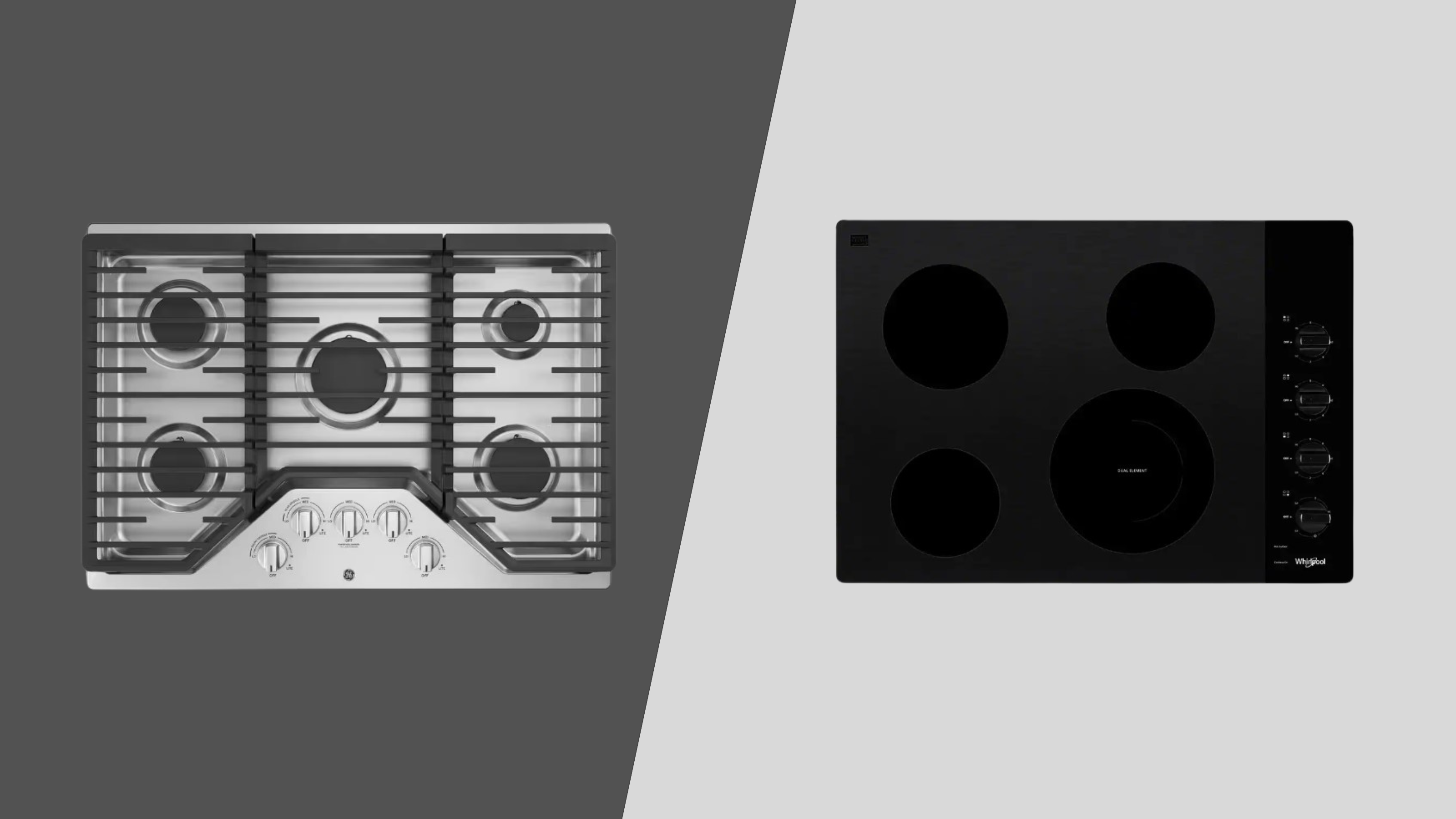If you're at the exciting point where you can decide between gas vs electric stoves for your kitchen, you'll know that it isn't a decision to be taken lightly.
The best gas ranges and electric cooktops each have strengths, and to determine which one is best for your kitchen and cooking needs, you must first decide what each cooktop offers.
Whether considering the whole range or adding a cooktop above one of the best ovens, we explore the design, cooking performance, safety, maintenance, and price factors to consider with gas, electric, and induction stoves (and induction, too).
We also interviewed appliance expert Alexander Hill about the strengths, weaknesses, and differences between the two types of cookers.
While at it, read our guide on gas vs. electric ovens to learn more about your kitchen appliances.

Alexander Hill, sales representative at The Appliance Depot, has over 5 years of experience specializing in home appliances, with expertise encompassing an in-depth understanding of the latest trends, technology, and sustainability practices in white goods and other household technologies.
Electric cooktop vs gas: Features & functions
Gas stoves use an open flame to cook food, while electric stoves use heating elements. Whether the heating elements are metal, ceramic-glass, or induction, electric cooktops offer a flat surface for even and consistent cooking across the whole surface. Gas cookers rely on heat provided by the flame.
Gas cookers use one of two types of ignition: a pilot light or an electronic ignition. An electronic ignition system creates a spark when you turn the burner on, whereas a pilot light has a constantly burning flame next to the burner. Naturally, pilot lights use a lot more energy.
Standard electric stoves often heat up by sending electricity to internal coils underneath the cooker's surface. These tend to be slower as the element will take time to heat, but the benefit here is that they provide "a more even surface temperature, which is great for flat-bottomed cookware," Alexander explains.
Gas is the more energy-efficient option because electric stoves require a lot of electricity. Induction stoves, however, are designed differently from standard electric ones. They use electromagnetic energy with compatible cookware to create heat and are said to be more energy-efficient than their gas counterparts.
Visually, gas stoves offer a more traditional look in the kitchen and perhaps one that's more familiar to those who have lived in older homes. Electric stoves can range from flat, grey discs to sleek, polished worktops—and there's a great deal of choice to match your kitchen's style.

Because of these differences, each stove requires a different setup. Gas stoves must be connected to a home's gas supply, and electric stoves must have dedicated power connectors to access the home's electricity. Both come with risks, as gas leaks or faulty wiring must be avoided when installing a cooker.
As Alexander explains, it's also worth noting that "gas stoves emit more ambient heat into the kitchen." This can be felt in warmer climates or homes with poor ventilation, so it might be beneficial to choose electricity if your home needs to keep things cooler.
Electric cooktop vs gas: Performance
Gas stoves typically heat cookware more quickly because the flame is ignited instantly. Instant heat and precise temperature control are two of the reasons why many professional chefs prefer gas stoves.
"The flame allows for quick adjustments, which is particularly beneficial for dishes that require sudden changes in heat," Alexander explains. Charring or flambéing are cooking techniques that require the heat and intensity of a flame.
Electric cooktops provide limited temperature control and typically won't offer the same tactile control over the heat application as gas. "Induction cooktops offer rapid heating and precise control, rivaling gas," Alexander adds.
However, induction cannot maneuver your cookware; it must touch the stove to apply heat. Induction stoves are also only compatible with magnetic induction pans, meaning a switch to an induction stove often comes with buying a new cookware.
"Electric stovetops may require flat-bottomed cookware for optimal heat transfer," says Alexander, whereas gas stoves are compatible with nearly any type of pan. Also, the surface of an electric stove will stay warm for a while after it's turned off, so pans will continue to be heated, whereas gas cookers extinguish the heat instantly (and induction cookers cool down very quickly, too).
Electric cooktop vs gas: Maintenance
One of the most significant advantages of any electric cooking surface is its easy cleaning. Whether induction or standard, the flat surface makes light wiping and deep cleaning painless—all you have to do is wait for the surface to cool down.

Gas stoves, on the other hand, can be pretty fiddly. They have small crevices around the burners to clean and removable grates and burner caps to maintain. Food and grease can quickly build up around these components, and it's not as easy as wiping down a flat surface.
"Gas stovetops also require occasional maintenance to ensure the burners function correctly," Alexander adds. "This can involve checking for clogged burner ports and ensuring the igniter is clean and functioning."
Electric stoves require less maintenance but are more prone to damage, such as scratches and cracks. Abrasive cleaners and scouring pads should be avoided, and spills must be cleaned quickly to not burn onto the cooker's surface.
Regarding safety, the main risk to consider here is the open flame hazard from gas cookers, but electric cookers can also be harmful when touched without realizing they're still hot. Most often, the heating element will be visibly red, or a light will be displayed when it's still warm—but this is not always the case.
Electric cooktop vs gas: Price & value
Gas and electric stoves are pretty similar in terms of price. You can find most options between $600 and $1200 (and this is often the price for a full range with the oven included).
However, gas stoves are much cheaper to run than electric ones, as they use less energy. Induction cookers, however, are more efficient than standard electric ones and often become more affordable to run than gas stoves.
Electric cooktop vs gas: which is better?
Gas offers the best cooking capabilities of any cooker. Precise temperature control, maneuverability, flame cooking, and instant heat are unmatched in electric cookers. Gas is still the most potent option for anybody who prioritizes cooking ability.
However, electric stoves are the best option for people who focus less on specific cooking techniques and are more interested in a safe, low-maintenance stove. Induction offers much more cooking power, better energy usage, and easier maintenance than standard electricity, but this often comes at a higher cost.

